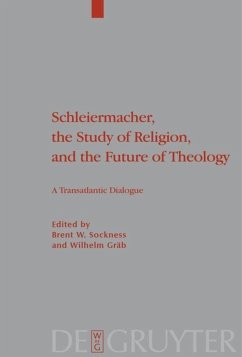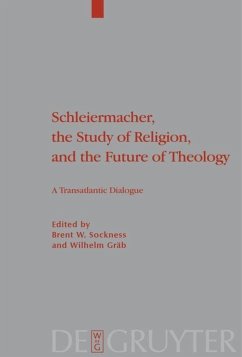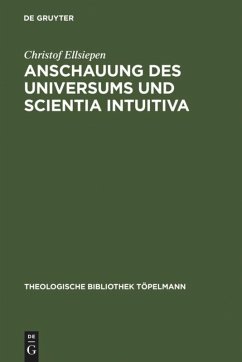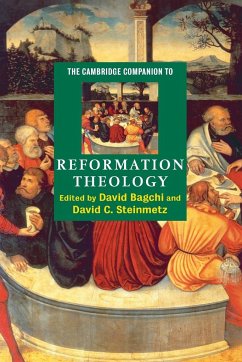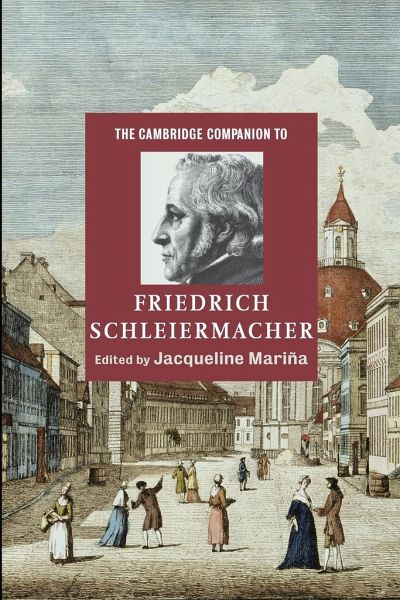
The Cambridge Companion to Friedrich Schleiermacher
Versandkostenfrei!
Versandfertig in 1-2 Wochen
49,99 €
inkl. MwSt.
Weitere Ausgaben:

PAYBACK Punkte
25 °P sammeln!
Known as the 'Father of modern theology' Friedrich Schleiermacher is without a doubt one of the most important theologians in the history of Christianity. Not only relevant to theology, he also made significant contributions in areas of philosophy such as hermeneutics, ethics, philosophy of religion and the study of Plato, and he was ahead of his time in espousing a kind of proto-feminism. Divided into three parts, this Companion deals firstly with elements of Schleiermacher's philosophy, such as metaphysics, epistemology of religious knowledge, ethics, hermeneutics, and contributions to Plato...
Known as the 'Father of modern theology' Friedrich Schleiermacher is without a doubt one of the most important theologians in the history of Christianity. Not only relevant to theology, he also made significant contributions in areas of philosophy such as hermeneutics, ethics, philosophy of religion and the study of Plato, and he was ahead of his time in espousing a kind of proto-feminism. Divided into three parts, this Companion deals firstly with elements of Schleiermacher's philosophy, such as metaphysics, epistemology of religious knowledge, ethics, hermeneutics, and contributions to Plato scholarship. It goes on to discuss theological topics such as sin and redemption and Christology, and the final section is devoted to Schleiermacher's understanding of culture. This is the first book in English introducing readers to all the important aspects of Schleiermacher's thought in a systematic way, containing essays by some of the best Schleiermacher scholars in Germany and in the English-speaking world.






